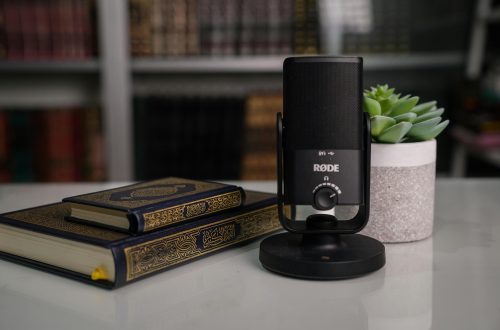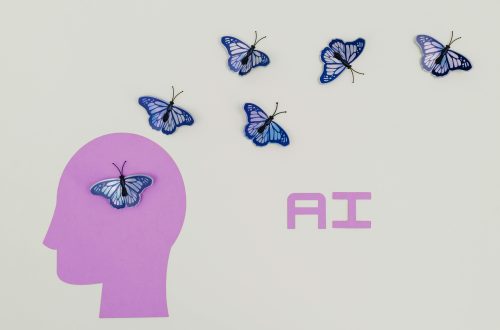
Hyperlinked in Higher Education: A Reflection
Student engagement drives learning (Basgen & Testori, 2016). This comes as no surprise: many of us find it easier to research a topic that piques our interest. In fact, it’s so natural that the etymology of “study” involves estudiier, an Old French term that can be translated as “show zeal for” (which is amazing; Online Etymology Dictionary, 2023).
An academic library that embraces the Hyperlinked Model cultivates engagement in creative ways, such as creating personalized learning environments or helping students approach research with curiosity, rather than stress and stagnancy (Basgen & Testori, 2016; Deitering & Gascho, 2017). Moreover, the hyperlinked academic library realizes that mental performance depends upon overall well-being; it thus serves its patrons through a holistic lens. I particularly appreciate the idea that academic libraries are capable of this, as I believe many people view them as professional and impersonal places, not unlike the library in Monsters University that demands silence.
Many academic libraries have already taken the first brave steps away from the familiar, crossing the “frontier intentionally and [operating] within chaos for a period to expand the boundary” of their roles (Matthews, 2017, p. 16). For example, the library at Carroll University launched a food share program (Spice, 2019). There are also the UMass Amherst Libraries—and others like them—who have led student wellness initiatives (Zelazo, 2022).
This idea that engagement motivates learning holds true whether you are a formally enrolled student or simply a “student” in your topic of choice. This reflection was primarily focused on the former in an academic library, but I believe the principles can be applied to all libraries, which serve as learning environments in various spaces. I have enjoyed seeing so many hyperlinked possibilities.
References
Basgen, B. & Testori, P. (2016). Socially engaged learning. https://er.educause.edu/articles/2016/3/socially-engaged-learning
Deitering, A. & Gascho Rempel, H. (2017). Sparking curiosity. https://www.inthelibrarywiththeleadpipe.org/2017/sparking-curiosity/
Spice, C. (2019, September 6). Carroll launches food share program for students. Carroll University. https://www.carrollu.edu/articles/alumni/2019/09/carroll-launches-food-share-program-for-students
Mathews, B. (2017). Cultivating complexity: How I stopped driving the innovation train and started planting seeds in the community garden. https://vtechworks.lib.vt.edu/server/api/core/bitstreams/4c33041c-b2bc-4215-9231-aedaf0dcd8e3/content
Online Etymology Dictionary. (2023, September 11). Study. https://www.etymonline.com/word/study#etymonline_v_22215
Zelazo, M. (2022, December 2). A place for ALL: The libraries’ critical role in supporting student success. University of Massachusetts Amherst Libraries. https://www.library.umass.edu/news/a-place-for-all-the-libraries-critical-role-in-supporting-student-success/





4 Comments
Millicent
@valancy I think that academic libraries doing student wellness initiatives is so great, and should be implemented everywhere. It is easy to burnout in college and fall into a stagnant state or a state of depression. It’s nice to have a library that notices that and provides workshops or tools to help defeat it. Sometimes students need a break, but don’t know how to even state that, so it’s good to just have the options out in the open and available to them.
Valancy
@inabookbind I agree about the burnout! And yes, it can be so helpful to have a resource available with as little embarrassment/shame/stigma as possible. I liked that Carroll University didn’t label their service as a “food pantry” (despite functioning as such) in order to reach as many students as possible, because that label can be viewed negatively. Thank you for visiting!!
Michael Stephens
@valancy I am all about the programs that promote wellness and offer access to food and personal care items inside the library… Especially the academic library. Your take on socially engaged learning also resonates and I think we should work to promote that for undergrad as well as graduate students. I’m thinking back to my undergrad time and it felt kind of not socially engaged, except for when we were put together on group projects.
Valancy
@michael yes, exactly! Most of my social engagement in undergrad was through forced proximity (though I valued them a lot!), and I wish I had taken more time to develop those and other relationships, especially when I felt homesick. My university library would stay open late and put out hot chocolate during finals week, which people seemed to really appreciate (the treats disappeared quickly, anyway). I also saw students really engage with the escape room that was hosted one week; I think it was a fun way for them to hang out with friends, spend $0 on entertainment, and take their minds off of academic stressors. Thank you for your comment!